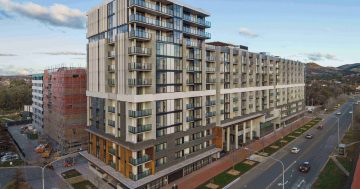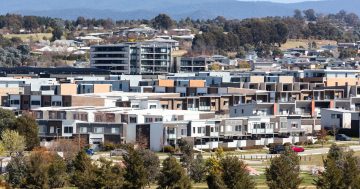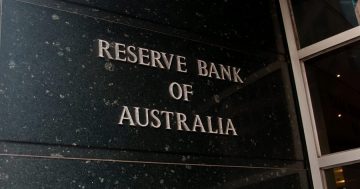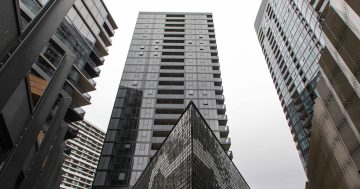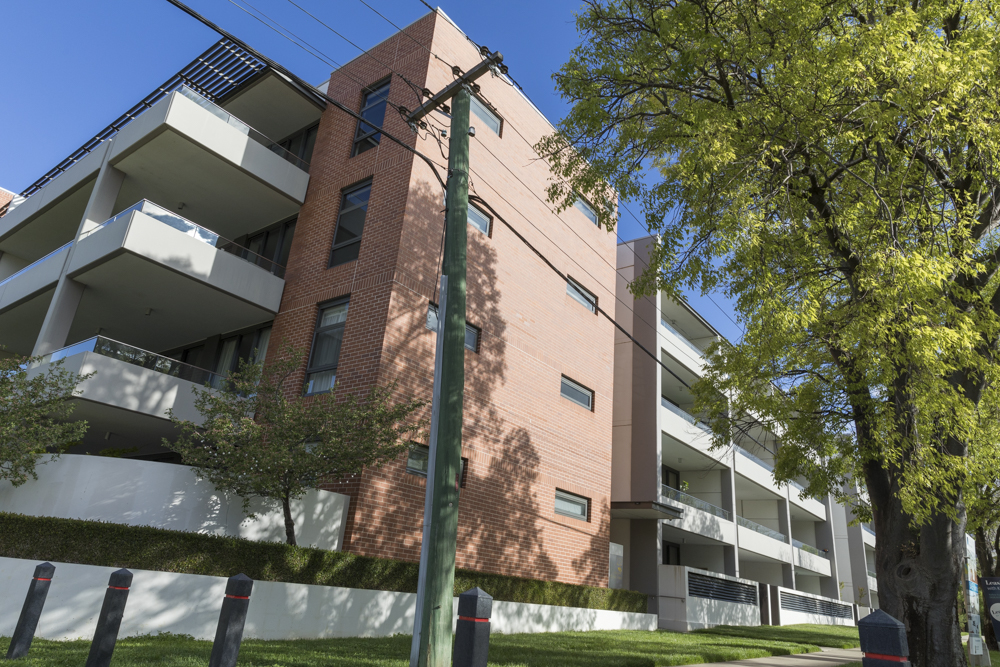
Homeowners who bought second-hand apartments in the past three to five years may be in trouble. Photo: Region.
Today’s interest rate rise will start to put pressure on Canberra’s tightening rental market as potential first-home buyers hold off from purchasing a home and some homeowners decide they can’t afford to hang on anymore.
The Reserve Bank raised the cash rate by 0.25 per cent, taking the benchmark interest rate to 4.35 per cent and adding about $76 a month to repayments on a $500,000 home loan.
Monthly mortgage costs are up more than $1200 on that kind of loan since the RBA started its campaign to rein in inflation in May last year, and interest rates are now at the highest level since November 2011.
The Property Collective’s Will Honey said that while the Canberra market had already factored in an increase, there would be pain for homeowners, especially those who had bought second-hand apartments in the last three or four years, and implications for the rental market.
Mr Honey said those apartment owners were already feeling the pinch with increasing rates and another one was not going to help.
“Interest rates are going up and vacancy rates are starting to come the other way,” he said.
“This increase is going to put even more pressure on the vacancy rate as people who won’t be able to afford to buy stay in the rental market or homeowners sell and have to go into the rental market.
“This will put more pressure on rents.”
Ironically, that will feed back into inflation.
Mr Honey said another rate rise after this one would make for an interesting start to 2024.
“It’s not going to be too good for our market,” he said.
Without any increases, the Canberra market was looking forward to a promising New Year.
The saving grace for those buyers who can adjust their borrowing budget is that the rate rise could keep prices down, something that was in the mind of new Reserve Bank Governor Michele Bullock, who noted in her official statement that housing prices were continuing to rise across the country.
Mr Honey said the spring had been a patchy affair in Canberra apart from the high end of the market where several records had been broken.
He agreed that with more choice available and seller expectations realistic, the market was slightly in favour of buyers.
“The heat of the market isn’t there,” Mr Honey said. “The high market hangover is over.”

Reserve Bank Governor Michele Bullock: the board is resolute in its determination to return inflation to target and will do what is necessary to achieve that outcome. Photo: RBA.
Ms Bullock said in her statement that inflation was still too high and proving more persistent than expected a few months ago.
“The latest reading on CPI inflation indicates that while goods price inflation has eased further, the prices of many services are continuing to rise briskly,” she said.
“While the central forecast is for CPI inflation to continue to decline, progress looks to be slower than earlier expected.
“CPI inflation is now expected to be around 3.5 per cent by the end of 2024 and at the top of the target range of 2 to 3 per cent by the end of 2025. The board judged an increase in interest rates was warranted today to be more assured that inflation would return to target in a reasonable timeframe.”
But the increase has divided economists, with many saying it was unnecessary and would not achieve what it set out to do.
Deloitte Access Economics partner Stephen Smith said it was the rate rise Australia didn’t need to have.
“With a slowing economy, supply-driven inflation, a more volatile geopolitical and global economic outlook, and past rate rises still to take full effect, mortgage holders and businesses seeking capital to invest will pay the price today,” he said.
Although the September quarter consumer price index print came in slightly above consensus forecasts, there isn’t enough evidence to suggest the uptick in inflation is here to stay or that lifting interest rates is the right way to fix the problem.”
Mr Smith said recent inflation had been driven by specific factors like higher global oil prices and rents rather than broad spending pressures.
“With increases to the cash rate only effective at reducing demand-led inflation, it is hard to see what a November rate hike achieves other than making it harder for Australians to pay their mortgage in the lead-up to Christmas,” he said.
But Ms Bullock said the board remained resolute in its determination to return inflation to target and would do what is necessary to achieve that outcome.












